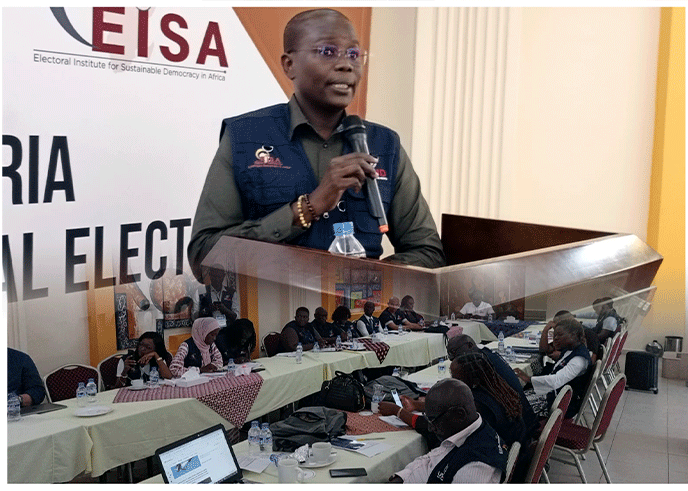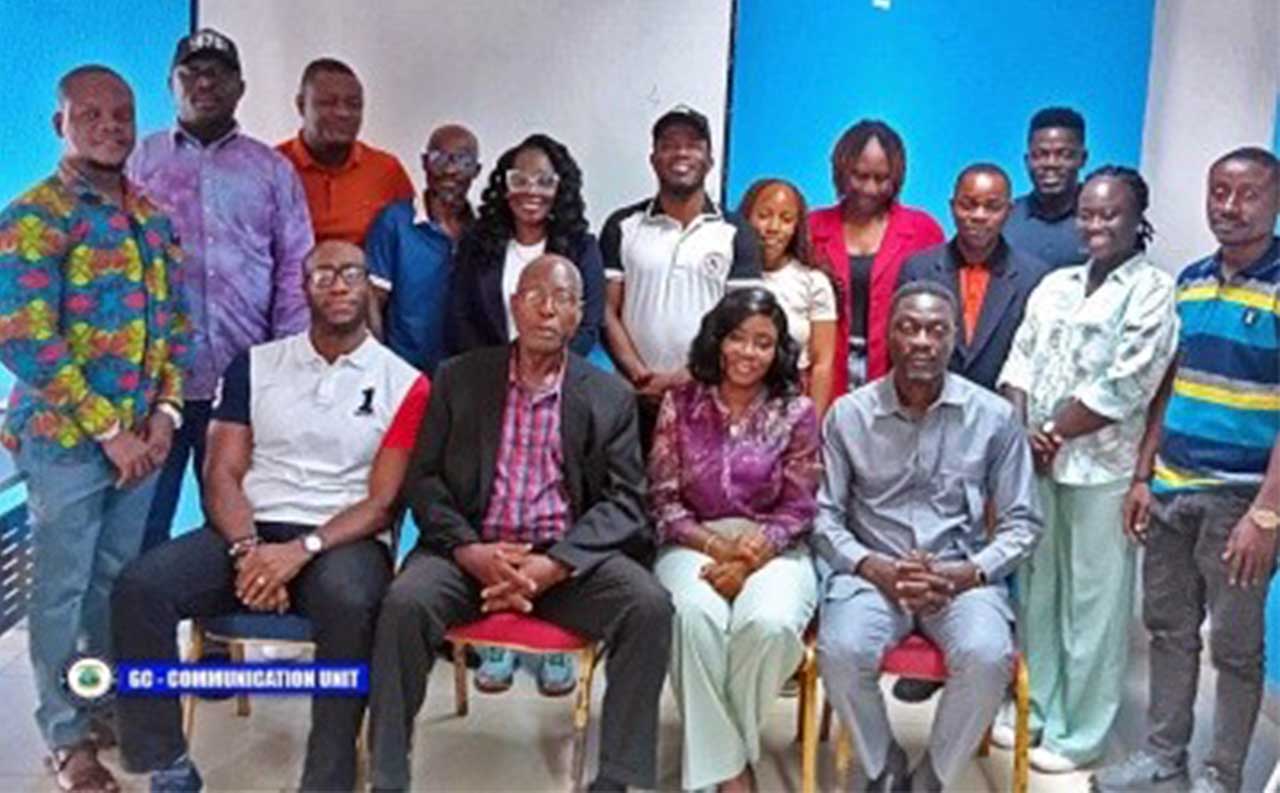The Electoral Institute for Sustainable Democracy in Africa International Election Observation Mission to Liberia (EISA-LIEOM) has raised concerns over the lack of implementation of critical constitutional reforms during the 2023 Presidential and Legislative Elections.
Publishing its final observatory report on Thursday, May 16, 2024 in Monrovia, EISA Country Representative to Liberia, Antonetta Hamandishe revealed that Liberia’s constitutional and legal framework lays a solid foundation for credible elections, but the non-implementation of these reforms raises concerns.
Hamandishe noted that “EISA’s assessment of Liberia’s electoral process highlights both the progress made in sustaining democracy over the past two decades and the complexities faced in the lead-up to the 2023 Presidential and Legislative Elections.”
However, she said the elections group was pleased with the unshakeable commitment of the Liberian electorate and citizenry to peacefully alternate power through the ballot box, as well as the commitment of the Liberian Government to upholding the peace and security of the election processes, and the commitment of the National Elections Commission (NEC) to the principles of transparency and accountability in the execution of its duties.
Hamandishe disclosed that it was upon the invitation of NEC that EISA-LIEOM carried out its observatory work between April 2023 and up to the date of its final report.
The EISA Country Representative said the Mission accredited a total of thirty-two observers from twenty-two African Countries supported by a team of six technical experts.
Giving details on the report, EISA Executive Director Baidessou Soukolgue said the final comprehensive election observation report is a testament of a well-managed election handled by NEC and the Government of Liberia.
This, he said, was achieved alongside the unwavering support of local and international stakeholders, despite encountering challenges along the way.
He commended the NEC for overseeing a well-executed election, characterized by transparency in information sharing, efficiency in mandate delivery, and adherence to procedures and regulations.
Soukolgue said the report offered recommendations for the consideration of national authorities and all local electoral stakeholders, which will prove valuable in the context of Liberia’s next election cycle.
The EISA Executive Director said these recommendations present an opportunity for improved practices to be reflected in the upcoming electoral cycle which he believes NEC is already planning.
According to him, these thirty-four recommendations provide a framework for enhancing electoral processes, with fundamental principles such as fairness, equity, and respect for political rights at the core, with the aim of contributing to the improvement of future elections.
Highlighting some of the key recommendations as contained in the report, he cited the need to improve civic and voter education strategies to strengthen political rights and enhance wider participation, prioritizing professional training of the media, especially in conflict-sensitive election reporting. This will manage tensions and incidents of violence, while establishing a media monitoring and regulation mechanism to combat misinformation and disinformation.
The electoral body further recommended that the NEC should be prioritized by the legislature through the passage of laws that will genuinely ensure equal political participation and removal of structural barriers to women.
EISA urged NEC and stockholders to review campaign finance regulations and employ measures to restrain the use of state resources during election campaigns, build the capacity of party representatives and agents to effectively follow through all the procedural processes at registration and polling stations.



